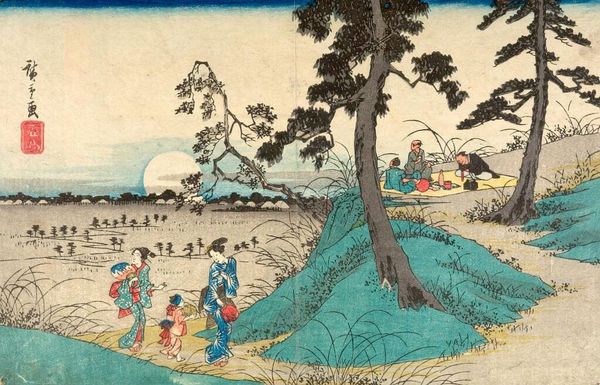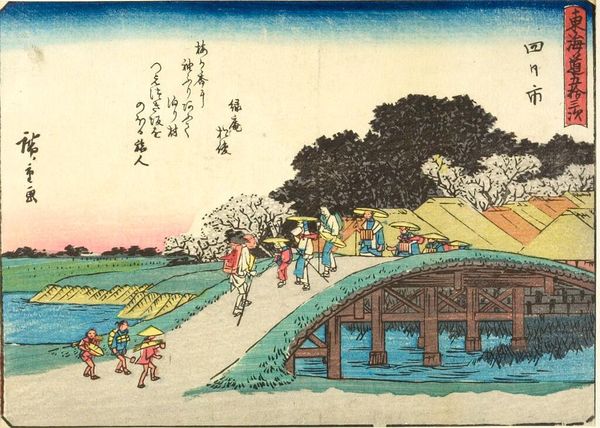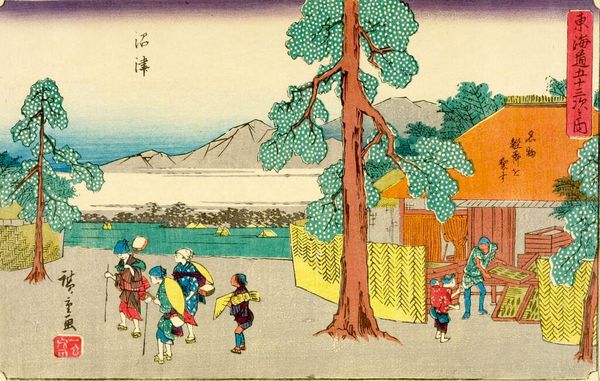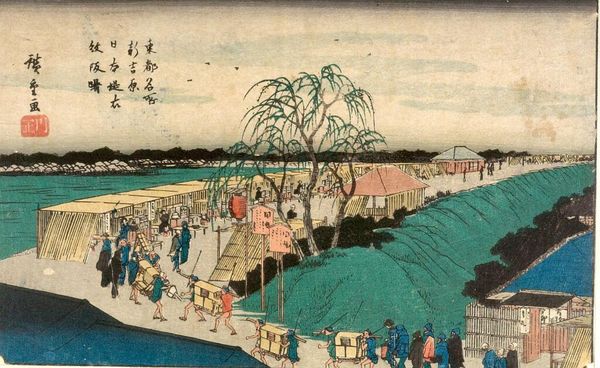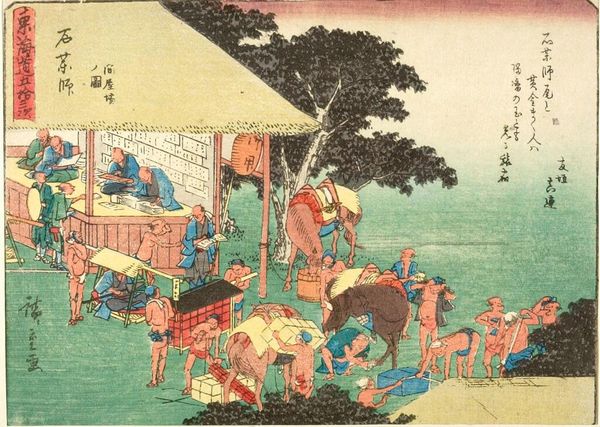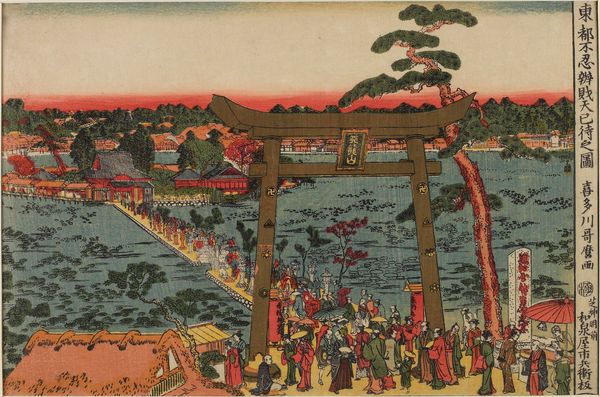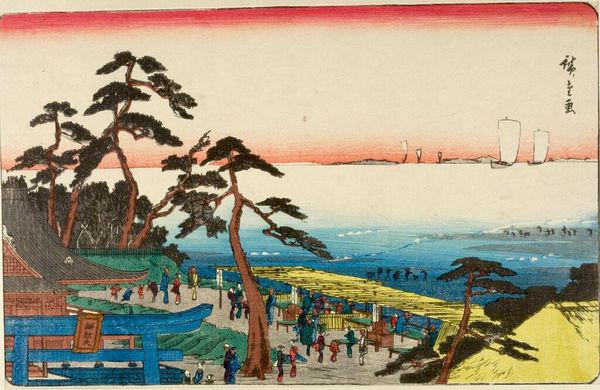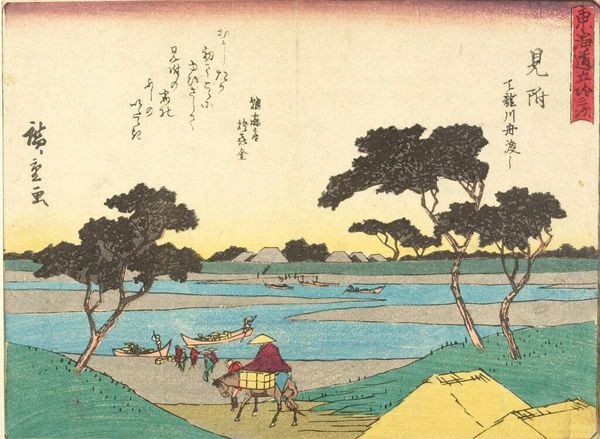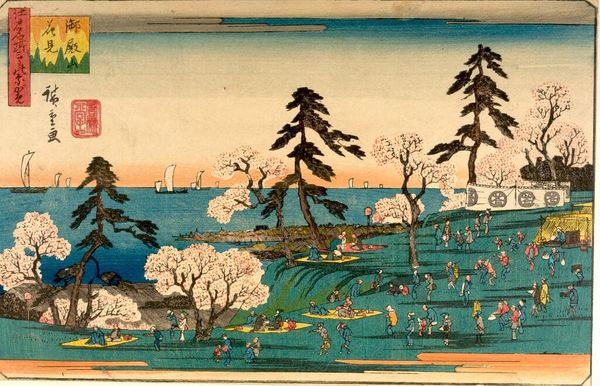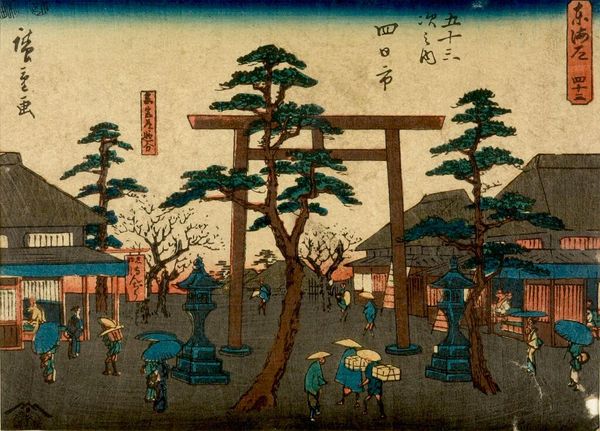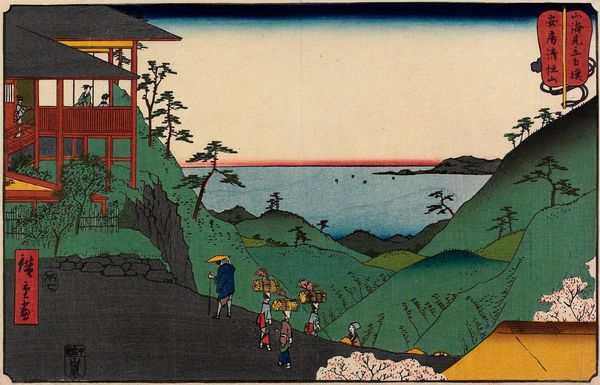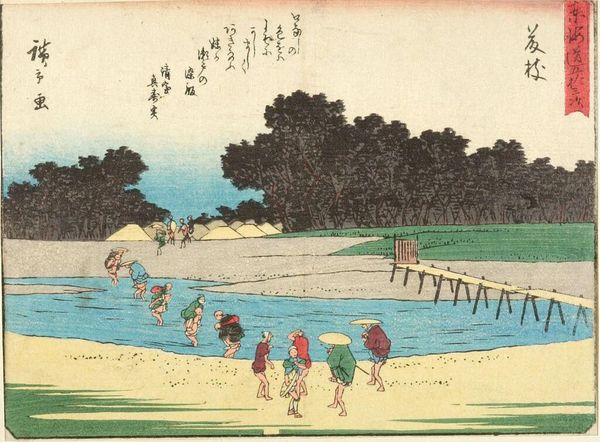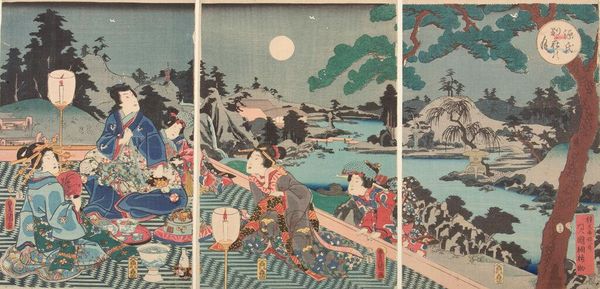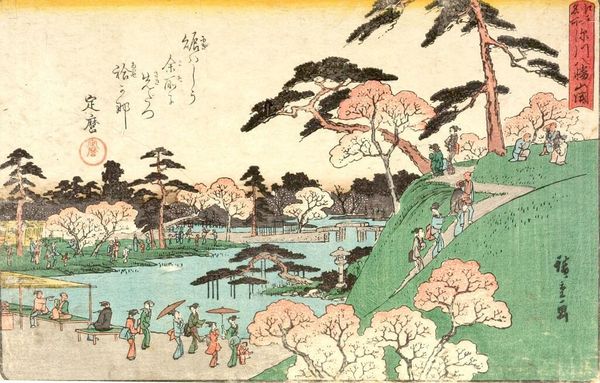
WISTERIA AT KAMEIDO TEMPLE GROUNDS, from the series Famous Places of the Eastern Capital (TÅto meisho) c. 19th century
0:00
0:00
Copyright: CC0 1.0
Curator: This is Utagawa Hiroshige's "Wisteria at Kameido Temple Grounds," part of his series "Famous Places of the Eastern Capital." Editor: It's so immersive! The way the wisteria drapes down creates this curtain-like effect. It almost feels like a stage. Curator: Indeed. Hiroshige was a master of capturing the essence of Edo period life and landscapes, especially for a growing merchant class eager for representations of their society. Editor: The wisteria itself is symbolic. It represents love, longevity, and grace, all themes that resonate within the temple grounds. Curator: Precisely, it speaks to the intersection of cultural ideals and lived reality. The presence of the temple and the blossoming wisteria would signify the importance of both ritual and beauty within urban society. Editor: It definitely brings a sense of calm and timeless beauty. Curator: A scene imbued with cultural meanings and Hiroshige's enduring artistry. Editor: A lovely glimpse into the past through symbols and setting.
Comments
No comments
Be the first to comment and join the conversation on the ultimate creative platform.
